Ditapis dengan
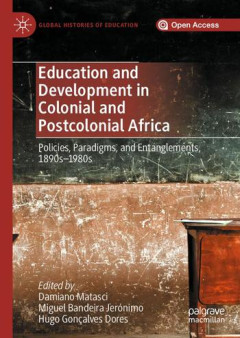
Education and development in colonial and postcolonial Africa :policies, para…
This open access edited volume offers an analysis of the entangled histories of education and development in twentieth-century Africa. It deals with the plurality of actors that competed and collaborated to formulate educational and developmental paradigms and projects: debating their utility and purpose, pondering their necessity and risk, and evaluating their intended and unintended consequen…
- Edisi
- -
- ISBN/ISSN
- 9783030278014
- Deskripsi Fisik
- xix, 321p.: ill.
- Judul Seri
- -
- No. Panggil
- 370.96 EDU e

Humanities Research Centre :a history of the first 30 years of the HRC at the…
Humanities; Research; History
- Edisi
- -
- ISBN/ISSN
- 9789751229830
- Deskripsi Fisik
- xiii, 400p. : ill.
- Judul Seri
- -
- No. Panggil
- 001.307119471 BAR h
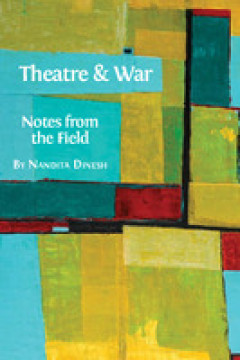
Theatre and war :notes from the field
"Nandita Dinesh places Kipling’s ""six honest serving-men"" (who, what, when, where, why, how) in productive conversation with her own experiences in conflict zones across the world to offer a theoretical and practical reflection on making theatre in times of war. This timely and important book weaves together Dinesh’s personal narrative with the public story of modern conflict, illustratin…
- Edisi
- -
- ISBN/ISSN
- 9781783742585
- Deskripsi Fisik
- 210 p
- Judul Seri
- -
- No. Panggil
- 809.293581 DIN t

Critical theory of communication :new readings of Lukács, Adorno, Marcuse, H…
"This book contributes to the foundations of a critical theory of communication as shaped by the forces of digital capitalism. One of the world's leading theorists of digital media Professor Christian Fuchs explores how the thought of some of the Frankfurt School’s key thinkers can be deployed for critically understanding media in the age of the Internet. Five essays that form the heart of th…
- Edisi
- -
- ISBN/ISSN
- 9781911534075
- Deskripsi Fisik
- iv, 230p. : ill.
- Judul Seri
- -
- No. Panggil
- 301.01 FUC c
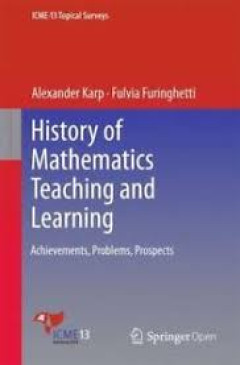
History of mathematics teaching and learning
The history of mathematics education is afield of study that is both old and new. It is old because scholarly works in the field began to appear over 150 years ago. Schubring (2014a) refers to Fisch (1843), as possibly thefirst work on the subject published in Germany. In the United States thefirst dissertations on mathematics education (Jackson 1906; Stamper 1906) focused specifically on i…
- Edisi
- -
- ISBN/ISSN
- 9783319316154
- Deskripsi Fisik
- -
- Judul Seri
- -
- No. Panggil
- 510.71 KAR h
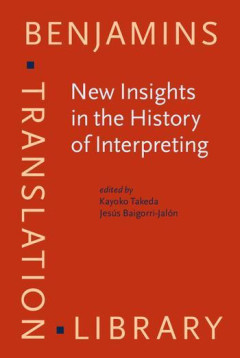
New insights in the history of interpreting
Who mediated intercultural exchanges in 9th-century East Asia or in early voyages to the Americas? Did the Soviets or the Americans invent simultaneous interpreting equipment? How did the US government train its first Chinese interpreters? Bringing together papers from an international symposium held at Rikkyo University in 2014 along with two select pieces, this volume pursues such questions i…
- Edisi
- -
- ISBN/ISSN
- 9789027258670
- Deskripsi Fisik
- xvi, 278p. : ill.
- Judul Seri
- -
- No. Panggil
- 418.0209 NEW n

India and the patent war
India and the Patent Wars examines struggles over patents and access to medicine among pharmaceutical producers, activists and others under a new global intellectual property regime. In the past two decades, intellectual property rights have expanded throughout the globe creating a world in which protections for patents and copyrights have increased and a growing range of knowledge and practice…
- Edisi
- -
- ISBN/ISSN
- 9781501713972
- Deskripsi Fisik
- 202p.: ill.
- Judul Seri
- -
- No. Panggil
- 346.540486 HAL i
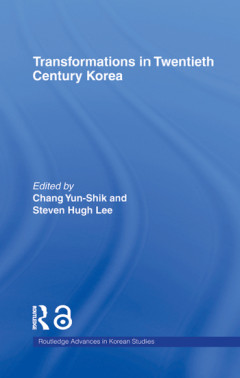
Transformations in twentieth century Korea
This edited collection traces the social, economic, political, and cultural dimensions of Korea’s dramatic transformation since the late nineteenth century. Taking an interdisciplinary approach, the chapters examine the internal and external forces which facilitated the transition towards industrial capitalism in Korea, the consequences and impact of social change, and the ways in which Korea…
- Edisi
- -
- ISBN/ISSN
- 9780203968277
- Deskripsi Fisik
- xiii, 380p. : ill.
- Judul Seri
- -
- No. Panggil
- 330.95195043 TRA t
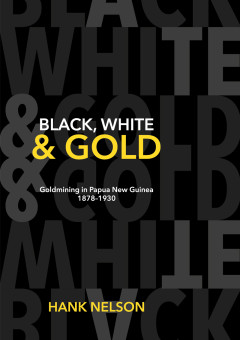
Black, white and gold :gold mining in Papua New Guinea, 1878-1930
Australian goldminers were among the first white men to have sustained contact with Papua New Guineans. Some Papua New Guineans welcomed them, worked for them, traded with them and learnt their skills and soon were mining on their own account. Others met them with hostility, either by direct confrontation or by stealthy ambush. Many of the indigenous people and some miners were killed. The min…
- Edisi
- -
- ISBN/ISSN
- 9781921934346
- Deskripsi Fisik
- xx, 298p. : ill.
- Judul Seri
- -
- No. Panggil
- 622.3420995 NEL b

Scholars, travellers, and trade :the pioneer years of the National Museum of …
Today, the National Museum of Antiquities in Leiden is internationally known for its outstanding archaeological collections. Yet its origins lie in an insignificant assortment of artefacts used for study by Leiden University. How did this transformation come about? Ruurd Halbertsma has delved into the archives to show that the appointment of Caspar Reuvens as Professor of Archaeology in 1818 wa…
- Edisi
- -
- ISBN/ISSN
- 9780203634547
- Deskripsi Fisik
- xiv, 182p. : ill.
- Judul Seri
- -
- No. Panggil
- 069.09492 HAL s
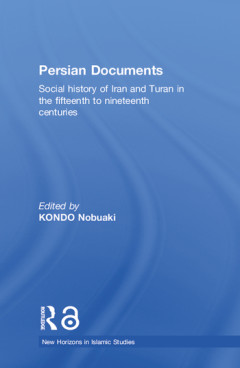
Persian documents :social history of Iran and Turan in the fifteenth to ninet…
After the Mongol period, Persian was the official written language in Iran, Central Asia and India. A vast amount of documents relating to administration and social life were produced and yet, unlike Ottoman and Arabic documents, Persian historical resources have received very little critical attention. This book is the first to use Persian Documents as the sources of social history in Early Mo…
- Edisi
- -
- ISBN/ISSN
- 9780203508862
- Deskripsi Fisik
- xvii, 189p. : ill.
- Judul Seri
- -
- No. Panggil
- 955.03 PER p
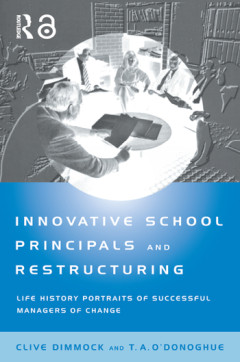
Innovative school principals and restructuring :life history portraits of suc…
Restructuring is an international phenomenon, and great stress is placed on the role of the innovative principal in the process. This book offers insights into the ways in which six principals go about leading the change process in their schools, and looks for ways of understanding why and how principals behave and think in the way they do. Its edited topical life history approach identifies ke…
- Edisi
- -
- ISBN/ISSN
- 9780203985946
- Deskripsi Fisik
- vi, 182p. : ill.
- Judul Seri
- -
- No. Panggil
- 371.200994 DIM i
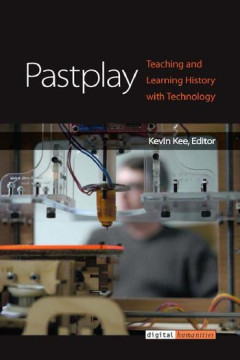
Pastplay :teaching and learning history with technology
A collection of scholars and teachers of history unpack how computing technologies are transforming the ways that we learn, communicate, and teach.
- Edisi
- -
- ISBN/ISSN
- 9780472119370
- Deskripsi Fisik
- viii, 338p. : ill.
- Judul Seri
- -
- No. Panggil
- 907 PAS p
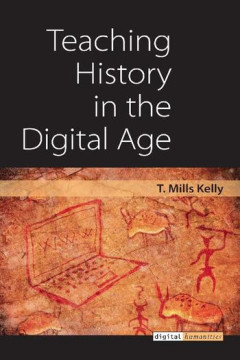
Teaching history in the digital age
A practical guide on how one professor employs the transformative changes of digital media in the research, writing, and teaching of history
- Edisi
- -
- ISBN/ISSN
- 9780472118786
- Deskripsi Fisik
- xiii, 167p. : ill.
- Judul Seri
- -
- No. Panggil
- 907.85 KEL t

A history of the case study :sexology, psychoanalysis, literature
This volume tells the story of the case study genre at a time when it became the genre par excellence for discussing human sexuality across the humanities and the life sciences. A History of the Case Study takes the reader on a transcontinental journey from the imperial world of fin-de-siècle Central Europe to the interwar metropolises of Weimar Germany, and to the United States of America in …
- Edisi
- -
- ISBN/ISSN
- 9781526106117
- Deskripsi Fisik
- VI, 240 p.
- Judul Seri
- -
- No. Panggil
- 300 LAN h
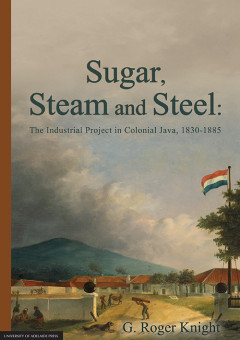
Sugar, steam and steel:the industrial project in colonial Java, 1830-1885
Sugar, Steam and Steel is about cane sugar and the transformation of an Indonesian island into the ‘Oriental Cuba’ during the middle decades of the nineteenth century. Between the 1830s and the 1880s, sweetener manufacture in Dutch-controlled Java — the crown jewel of the erstwhile Netherlands Indies — drew decisively away in matters of techno…
- Edisi
- -
- ISBN/ISSN
- 9781922064998
- Deskripsi Fisik
- xii, 243p.: ill.
- Judul Seri
- -
- No. Panggil
- 959.8022
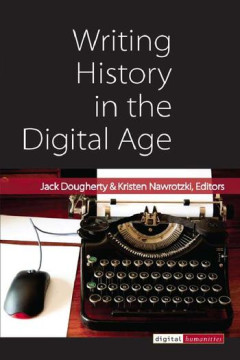
Writing history in the digital age
A born-digital project that asks how recent technologies have changed the ways that historians think, teach, author, and publish
- Edisi
- -
- ISBN/ISSN
- 9780472072064
- Deskripsi Fisik
- xiii, 283p. : ill.
- Judul Seri
- -
- No. Panggil
- 902.85 WRI w

Early public libraries and colonial citizenship in the British Southern Hemis…
This open access Pivot book is a comparative study of six early colonial public libraries in nineteenth-century Australia, South Africa, and Southeast Asia. Drawing on networked conceptualisations of empire, transnational frameworks, and ‘new imperial history’ paradigms that privilege imbricated colonial and metropolitan ‘intercultures’, it looks at the neglected role of public librarie…
- Edisi
- -
- ISBN/ISSN
- 9783030204266
- Deskripsi Fisik
- XV, 159 p.
- Judul Seri
- -
- No. Panggil
- 027.409171241 EAR e

Educating mind, body and spirit :the legacy of quintin hogg and the polytechn…
"The story of the Polytechnic and of the legacy of Quintin Hogg is the third publication exploring the University of Westminster's long and diverse history. A fitting tribute to the life and legacy of Hogg, his holistic approach to education and the institute he created. This book is richly illustrated with images from the University's Archive. A print paperback can be purchased direct from the…
- Edisi
- -
- ISBN/ISSN
- 9781911534174
- Deskripsi Fisik
- -
- Judul Seri
- -
- No. Panggil
- 378.42132 GLE e

A world of fiction :digital collections and the future of literary history
During the 19th century, throughout the Anglophone world, most fiction was first published in periodicals. In Australia, newspapers were not only the main source of periodical fiction, but the main source of fiction in general. Because of their importance as fiction publishers, and because they provided Australian readers with access to stories from around the world—from Britain, America and …
- Edisi
- -
- ISBN/ISSN
- 9780472130856
- Deskripsi Fisik
- viii, 252p. : ill.
- Judul Seri
- -
- No. Panggil
- 809.3034 BOD a
 Karya Umum
Karya Umum  Filsafat
Filsafat  Agama
Agama  Ilmu-ilmu Sosial
Ilmu-ilmu Sosial  Bahasa
Bahasa  Ilmu-ilmu Murni
Ilmu-ilmu Murni  Ilmu-ilmu Terapan
Ilmu-ilmu Terapan  Kesenian, Hiburan, dan Olahraga
Kesenian, Hiburan, dan Olahraga  Kesusastraan
Kesusastraan  Geografi dan Sejarah
Geografi dan Sejarah